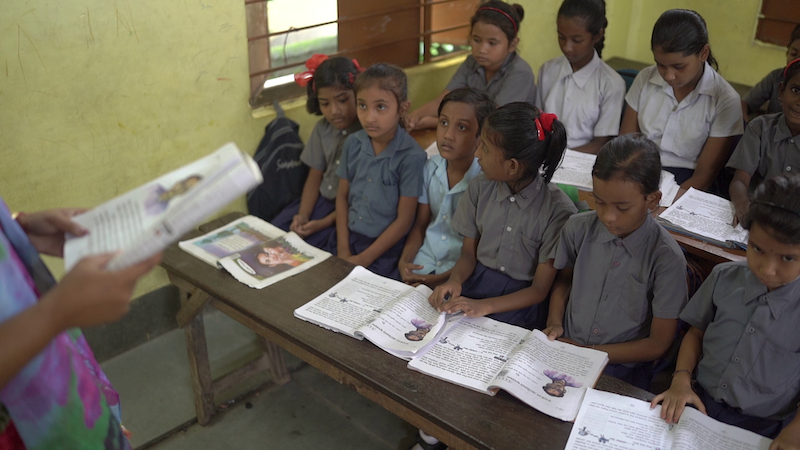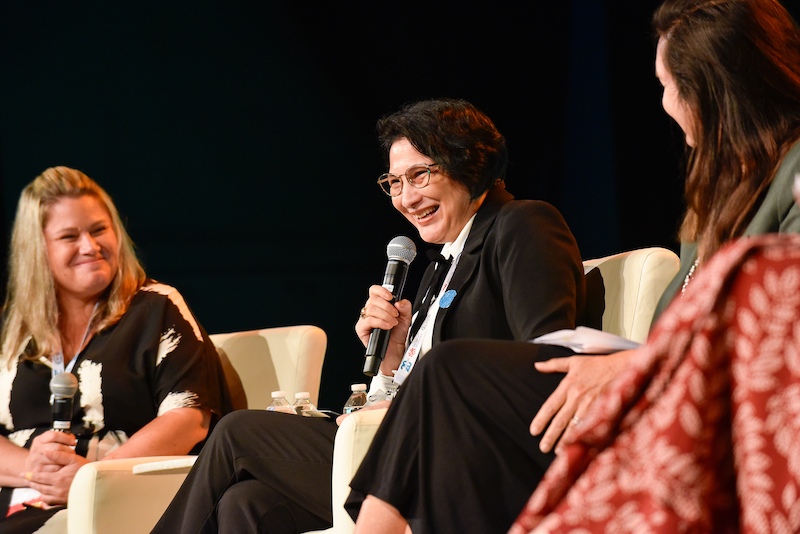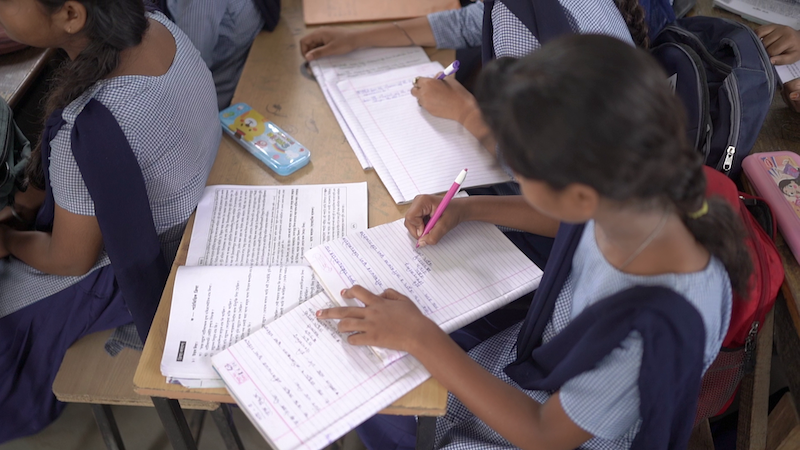“To change an entire society’s mindset is not easy,” says Anuradha Rai, lead facilitator for ECHO for Gender Equity in Schools. Yet that is what Rai, and the ECHO India Education team, set out to do.
Its pilot ECHO program had more than 90 educators from 32 schools. Participants discussed how to address inequity in schools and strategies for establishing long-lasting gender equity in education, which remains a challenge in India, especially for girls in rural and marginalized communities. Barriers including poverty, cultural norms, early marriage, and inadequate school sanitation contribute to higher dropout rates, which can be amplified by gender bias in teaching and curricula.
The impact of the Gender Equity in Schools ECHO program has been clear: teachers reported feeling more confident identifying opportunities to promote gender equity. They also observed their students treating each other with more empathy and, specifically, noted more positive interactions between male and female students.

The Gender Equity in Schools program focuses on increasing awareness of gender equity as a whole, but also on how to have a dialogue about gender and methods for empowerment.
The program’s success can be attributed to the two years of careful planning and relationship-building with school administrators in urban, semi-urban and deeply rural areas. The ECHO program team adapted the ECHO Model to analyze changes in identities and attitudes related to gender equity.
“This program required a very complex program design,” says Soraya Gollop, Ph.D., education director for Project ECHO, who helped guide and design the curriculum alongside Rai and experts on the ECHO India team. “We needed to address experience, emotion and reflection to change the attitudes not only of the teachers, but of the students they work with.”
Building Community and Measuring Progress
“From the outset, the evaluation piece was a foundational component in designing the program,” says Rai. “We needed to know the change we wanted to see.” As a result, the program evaluates and analyzes participant knowledge before and after, and also offers a completion survey.

Rai spoke on the Gender Equity panel at the 2023 MetaECHO Conference alongside ECHO Gender Equity Director, Simran Priel.
“I learned how to guide children to reflect on their actions,” says Ms. Kalpana, a participant teacher in New Delhi. “In my classroom, using techniques from the Gender Equity ECHO, girls and boys are now less afraid of talking with each other. The atmosphere has become more open.”
Initially, there was skepticism that the program would be successful, given that gender equity is a potentially contentious topic with teachers and school administrators from very different areas, and cultural contexts, of India. But rather than division, they saw a common commitment to championing gender equity emerge among teachers from different contexts, building community across local cultures.
“The ECHO program has been pathbreaking because, for the first time ever, we have a structure to this conversation on gender equity in education,” says Rai. “Instead of polarizing the community, we’re bringing men and women together. When there is societal progress, it impacts everybody.”
Learn more about Project ECHO’s Gender Equity Initiative.


